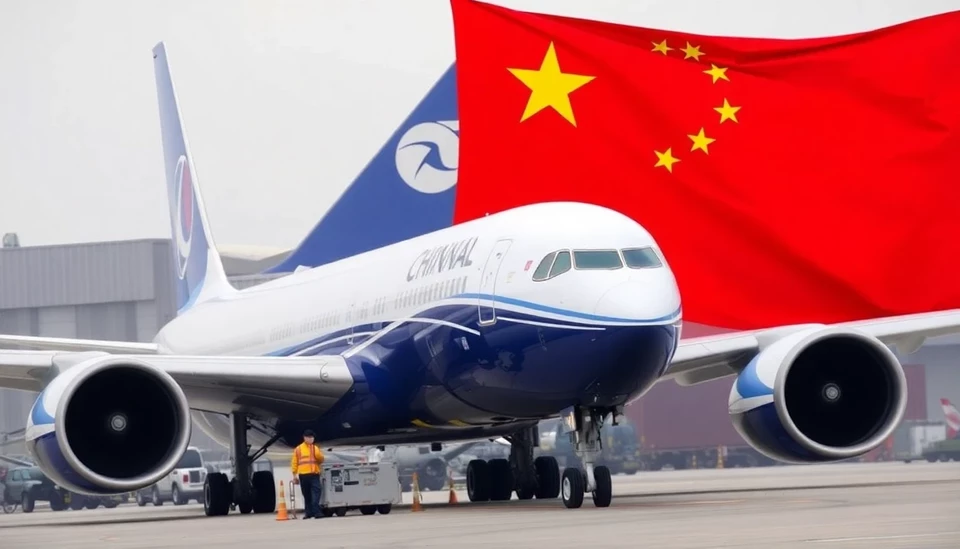
In a dramatic development within the ongoing trade war, China has officially announced its decision to impose tariffs on Boeing aircraft in response to what it claims are unfair trade practices. This move underscores the continuing friction between the two economic powerhouses and raises concerns over the future of trade relations between the United States and China.
The Chinese Ministry of Commerce revealed that the tariffs would target a range of Boeing’s aircraft models and are positioned as a countermeasure to similar duties that the United States has placed on Chinese products. This tit-for-tat strategy has further complicated dialogue aimed at resolving trade disputes that have persisted for years.
Industry analysts are already voicing their concerns about the potential impact this decision could have on Boeing's sales and the broader implications for the aviation industry. Boeing, an iconic American corporation and one of the world’s largest aerospace manufacturers, has already faced challenges stemming from production delays and the pandemic's effects on global travel.
China’s decision to target Boeing specifically is significant, as the aerospace market is a substantial sector in the U.S.-China trade landscape. Historically, both countries have relied on each other for components and finished goods within this industry, making this latest move a calculated escalation that can have ripple effects on both sides.
Market reactions to the announcement have been immediate, with Boeing's stock showing volatility in the wake of the news. Investors are concerned not just about the financial ramifications for the company itself, but also about how this might influence other sectors economically tied to trade with China.
In response to these new tariffs, Boeing has stated that they are "deeply disappointed" and are evaluating how to navigate the evolving landscape while maintaining their commitment to international standards and processes. The company has engaged in discussions with the U.S. government to mitigate the fallout and seek assistance in countering the tariffs.
Furthermore, experts suggest that this move by China could be a preliminary shot in a larger scheme to negotiate more favorable terms for its own manufacturers and potentially showcase its growing assertiveness in handling trade disputes. As the landscape continues to shift, both nations may need to revisit their strategies in face of escalating tensions.
A comprehensive resolution appears increasingly elusive as both the United States and China grapple with their respective priorities and domestic pressures. The international community will be closely monitoring how these developments unfold, particularly as they pertain to global trade agreements and economic stability.
As tensions rise further, businesses and consumers alike are left wondering: what will be the long-term effects on trade, prices, and availability of goods across borders? The repercussions of this latest action may set the tone for future engagements between these two countries.
With dialogue strained, many are calling for renewed efforts to engage in constructive negotiations, at a time when collaboration could be more beneficial than confrontation.
#TradeWar #ChinaTariffs #Boeing #USChinaRelations #AviationIndustry #Economics
Author: Daniel Foster




